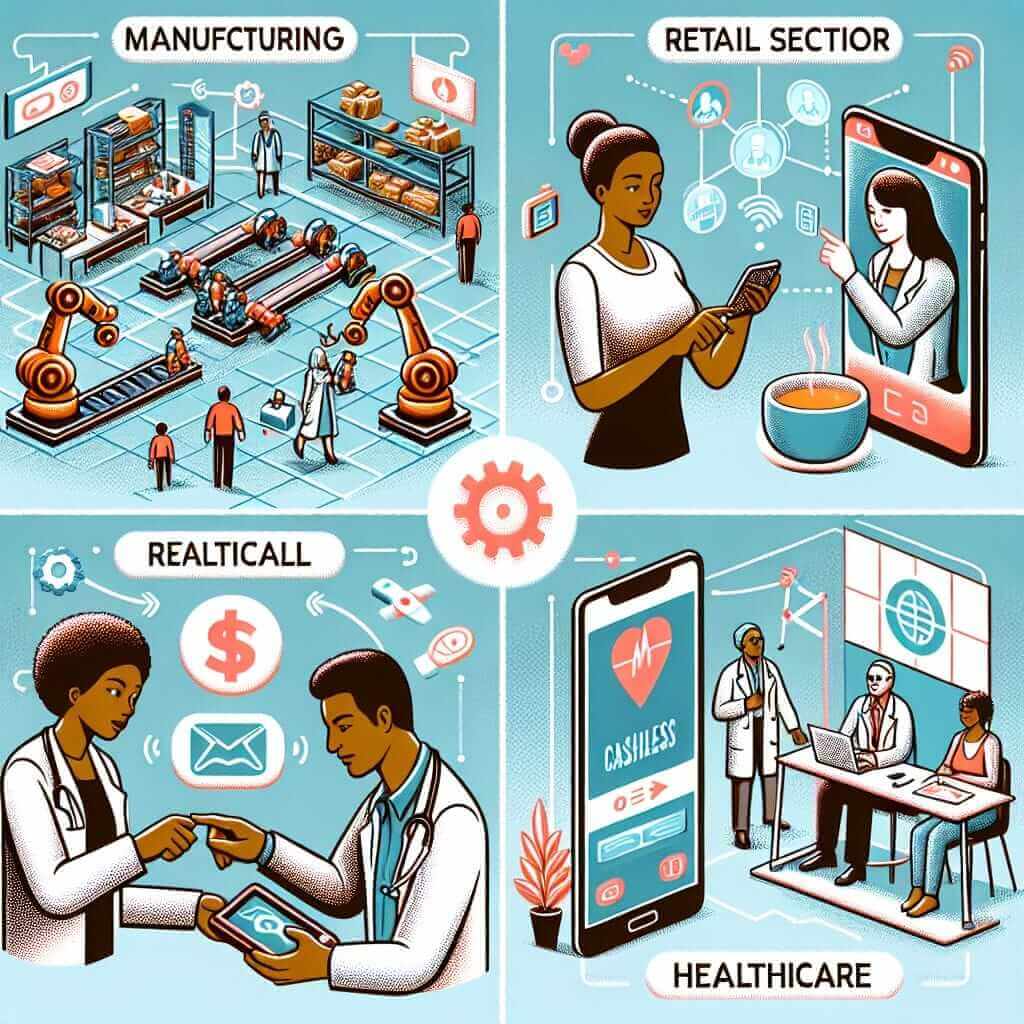The IELTS Reading section can be quite challenging, with passages drawn from a range of sources and topics. One such topic that has gained significant attention recently is the impact of digital transformation on traditional industries. This topic not only covers an important aspect of modern economic changes, but it is also highly relevant, making it a good candidate for an IELTS Reading passage. In this article, we will explore this topic in depth and provide a practice reading text along with questions and answer keys to help you prepare effectively for the IELTS exam.
The changes brought about by digital transformation have been profound and multifaceted, affecting various traditional industries such as manufacturing, retail, and even healthcare. The prevalence of this topic in academic discussions and real-world applications increases the likelihood of encountering it in the IELTS Reading section.
Practice Reading Passage: Medium Text
The Impact of Digital Transformation on Traditional Industries
Over the past two decades, digital transformation has become a ubiquitous term, representing the profound shift in business operations and industries due to technological advancements. This transformation entails integrating digital technologies into all areas of business, fundamentally changing how companies operate and deliver value to customers. Traditional industries, which have operated in a relatively unchanged manner for many decades, are experiencing significant shifts due to this digital wave.
Changes in Manufacturing
The manufacturing sector is one of the most affected by digital transformation. Traditionally reliant on manual labor and mechanical processes, manufacturing is now leveraging the Internet of Things (IoT), artificial intelligence (AI), and robotics to enhance production efficiency. For instance, predictive maintenance technologies use AI to predict equipment failures before they happen, thus reducing downtime and maintenance costs. These technologies enable manufacturers to streamline operations, improve product quality, and reduce operational costs.
Retail Evolution
Similarly, the retail industry has undergone a dramatic transformation. The rise of e-commerce has revolutionized how consumers shop, leading to a decline in traditional brick-and-mortar stores. Digital tools such as online shopping platforms, mobile apps, and personalized marketing strategies have redefined the consumer experience. Retailers are now able to gather vast amounts of consumer data to understand buying behaviors and preferences, allowing for targeted advertising and enhanced customer engagement.
Healthcare Advancements
The healthcare industry has also seen significant advancements due to digital transformation. Telemedicine, electronic health records, and health monitoring apps have improved patient care and accessibility. Digital tools facilitate quicker diagnoses, personalized treatment plans, and seamless communication between patients and healthcare providers. For instance, telemedicine allows patients to consult with doctors remotely, overcoming geographical barriers and reducing the need for physical visits.
Challenges and Opportunities
While the benefits of digital transformation are evident, the transition is not without challenges. Traditional industries often face significant hurdles in adopting new technologies, such as high implementation costs, resistance to change, and a lack of skilled workforce. However, the opportunities presented by digital transformation, such as increased efficiency, cost savings, and new business models, outweigh these challenges. Companies that embrace digital transformation can stay competitive, innovate, and meet the evolving demands of their customers.
In conclusion, digital transformation has a profound impact on traditional industries, reshaping business models and operational processes. The ability to adapt and embrace new technologies is crucial for the survival and growth of businesses in today’s digital age.
Practice IELTS Reading Questions
Multiple Choice Questions
-
What does the term “digital transformation” refer to?
a. A shift in consumer preferences.
b. Integrating digital technologies into all areas of business.
c. A decline in traditional brick-and-mortar stores.
d. Improvements in patient care. -
How has digital transformation impacted manufacturing?
a. By increasing the reliance on manual labor.
b. By incorporating AI and robotics to enhance efficiency.
c. By reducing production costs through traditional methods.
d. By avoiding the use of predictive maintenance.
True/False/Not Given
-
Digital transformation has only had a positive impact on traditional industries.
- True
- False
- Not Given
-
Telemedicine removes the need for patients to visit doctors physically.
- True
- False
- Not Given
Matching Information
- Match each industry with its corresponding digital transformation impact.
- Manufacturing:
a. Use of IoT and AI - Retail:
b. Rise of e-commerce - Healthcare:
c. Telemedicine
- Manufacturing:
Answer Keys
- b. Integrating digital technologies into all areas of business.
- b. By incorporating AI and robotics to enhance efficiency.
- False
- True
- Manufacturing: a. Use of IoT and AI
Retail: b. Rise of e-commerce
Healthcare: c. Telemedicine
Common Mistakes
- Misinterpreting the terminology: Ensure to understand key terms like “digital transformation” properly.
- Overlooking details: Pay attention to the specifics of how different industries are impacted.
- Generalizing answers: Be specific when matching information to avoid incorrect matches.
Vocabulary List
- Ubiquitous (adj) /juːˈbɪkwɪtəs/: Existing everywhere or being very common.
- Predictive (adj) /prɪˈdɪktɪv/: Relating to the ability to predict future events or behaviors.
- Geographical (adj) /ˌdʒiːəˈɡræfɪkl/: Relating to the physical location or area.
- Seamless (adj) /ˈsiːmləs/: Smooth and continuous, without any visible gaps.
Grammar Focus
- Passive voice in academic writing:
- Example: “Digital tools are being incorporated into traditional industries.”
- Usage: The passive voice is often used to emphasize the action or process rather than the subject performing it.
Tips for a High Reading Score
- Practice regularly: Use various reading materials to improve comprehension skills.
- Skim and scan: Develop the ability to quickly locate key information.
- Expand your vocabulary: Frequent exposure to different topics will help you understand a wider range of texts.
- Time management: Practice completing each passage within the given time to enhance your efficiency.

In conclusion, thorough preparation and understanding of relevant topics like the effects of digital transformation on traditional industries can significantly enhance your performance in the IELTS Reading section. Good luck with your studies!